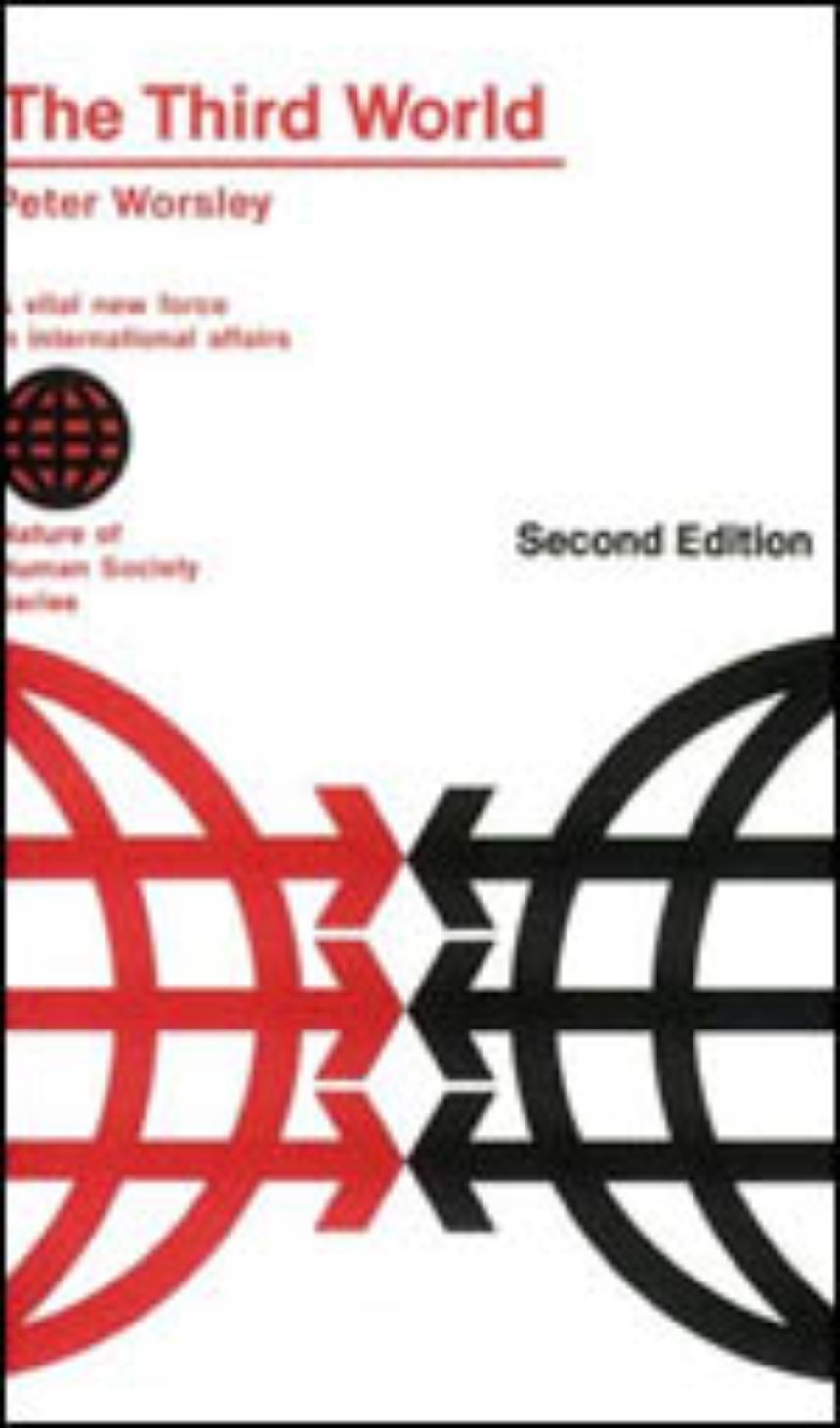The Third World
A Vital New Force in International Affairs
Second Edition
Today the colonial empires of the world are shrinking, and the new nations which have emerged from the colonial past are rapidly developing into an important force in international affairs—the "third world." They are faced by a common problem, the urgent necessity to transform a peasant society into a modern industrial economy, and they are united by a common outlook, absolute opposition to all forms of colonialism and neocolonialism.
In this work Peter Worsley analyzes the unique political forms that have evolved as a result of these two basic conditions. In his view the third world has rejected both of the great ideologies of today. Their new solutions are unique in world history, being based on populism, socialism, and, often, the one-party state, which, although anathema to the Western liberal, is a natural development in societies united by the common enemy of colonialism.
"No one seriously concerned with the greatest problem of our time, the division of the world between the developed, industrialized, ’affluent’ countries and les nations prolétaires, can afford to miss this book. . . . Professor Worsley has succeeded in giving us more solid information about underdeveloped parts of the world than can be found in any other book of comparable length."—The Times Literary Supplement
"Peter Worsley . . . has written an excellent descriptive analysis of the evolution and present state of a third force in world politics. Africa, Asia, and the Middle East have . . . given society not only a new philosophy with new goals but charismatic philosophers who have the potential to make the philosophy of the third world a vital presence to be reckoned with. . . . a brilliant book."—Peter Schwab, Journal of Modern African Studies
In this work Peter Worsley analyzes the unique political forms that have evolved as a result of these two basic conditions. In his view the third world has rejected both of the great ideologies of today. Their new solutions are unique in world history, being based on populism, socialism, and, often, the one-party state, which, although anathema to the Western liberal, is a natural development in societies united by the common enemy of colonialism.
"No one seriously concerned with the greatest problem of our time, the division of the world between the developed, industrialized, ’affluent’ countries and les nations prolétaires, can afford to miss this book. . . . Professor Worsley has succeeded in giving us more solid information about underdeveloped parts of the world than can be found in any other book of comparable length."—The Times Literary Supplement
"Peter Worsley . . . has written an excellent descriptive analysis of the evolution and present state of a third force in world politics. Africa, Asia, and the Middle East have . . . given society not only a new philosophy with new goals but charismatic philosophers who have the potential to make the philosophy of the third world a vital presence to be reckoned with. . . . a brilliant book."—Peter Schwab, Journal of Modern African Studies
Table of Contents
Foreword
Preface to the Second Edition
Introduction - The Creation of the World
1. The European Interlude
The Colonial Relationship - The Administrative Society - The Raison d’Etre
2. After the Deluge
From Elite Nationalism to Mass Nationalism - The Definition of the Nation
3. The Varieties of Revolutionary Experience
Nationalism and Communism - Nationalism and Social Democracy
4. Populism
The Populist Ideology Detaches Itself - Social Class in the Emergent Countries: (i) Bourgeoisie and Petty Bourgeoisie (ii) Workers and Peasants - Populism: Rural Idiom in a Modern World - Some American Cases
5. The Structure of the New States
The One-Party States - The Pluralist Polities - Differentiation and Conflict
6. The Hungry Peoples and the Affluent Blocs: Positive Neutralism
7. Towards World War IV: The End of the World?
Notes
Bibliography
Index
Preface to the Second Edition
Introduction - The Creation of the World
1. The European Interlude
The Colonial Relationship - The Administrative Society - The Raison d’Etre
2. After the Deluge
From Elite Nationalism to Mass Nationalism - The Definition of the Nation
3. The Varieties of Revolutionary Experience
Nationalism and Communism - Nationalism and Social Democracy
4. Populism
The Populist Ideology Detaches Itself - Social Class in the Emergent Countries: (i) Bourgeoisie and Petty Bourgeoisie (ii) Workers and Peasants - Populism: Rural Idiom in a Modern World - Some American Cases
5. The Structure of the New States
The One-Party States - The Pluralist Polities - Differentiation and Conflict
6. The Hungry Peoples and the Affluent Blocs: Positive Neutralism
7. Towards World War IV: The End of the World?
Notes
Bibliography
Index
